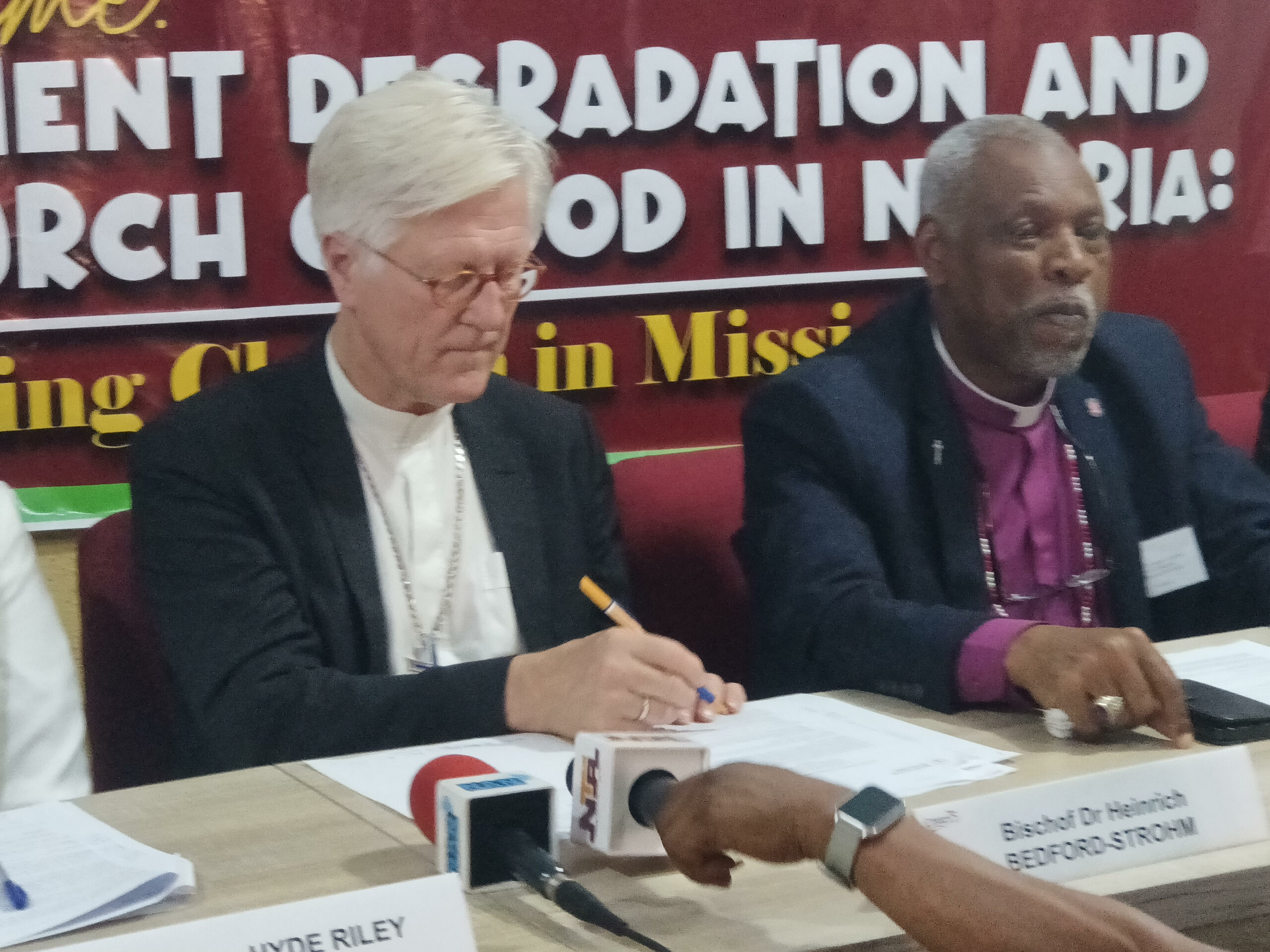- Calls for ceasefire in Gaza
From Fred Ezeh, Abuja
World Council of Churches (WCC) has registered its discontent with the growing and persistent attacks and destruction of Christian communities in Nigeria, particularly in northern Nigeria by armed non-state actors, Boko Haram.
The WCC said that such endless attacks have visited more pains, anguish, poverty and ancestral displacement on the people, thus demanding that government prioritise the safety and security of its citizens irrespective of social, religious and political affiliation.
The Council, however, decided that it will engage more with relevant stakeholders in areas of advocacy and dialogue so that improved and durable peace and justice can be achieved for peaceful co-existence among the people.
The Council took the decision at the end of their week-long Executive Committee meeting held in Abuja.
WCC is a fellowship of churches which confess the Lord Jesus Christ as God and Saviour according to the scriptures, and therefore seek to fulfil together their common calling to the glory of the one God, Father, Son and Holy Spirit. It’s a fellowship of 352 churches from more than 120 countries, representing over 580 million Christians worldwide.
WCC Moderator of the Central committee, Dr. Heinrich Bedford-Strohn, who addressed journalists at the end of the Executive Meeting in Abuja, affirmed Nigerian churches’ strong commitment to inter-religious dialogue and co-operation with the Nigerian Muslim community and institutions, hence he encouraged all efforts by the government to address the concerns of Christians and Muslims communities.
“However, the WCC Executive Committee received painful testimonies from the churches of the insecurity, violence, displacement and persecution being faced by Christians in northern Nigeria as well as in other parts of the country.
“The brutal attacks and kidnappings perpetrated by Islamic extremist groups such as Boko Haram and the Islamic State West Africa Province (ISWAP)) especially against Christians is inhumane and should be stopped forthwith. However, Christians and Muslims suffer from the violent depredations of these criminal ‘bandits’.
“In addition to northern Nigeria, severe insecurity also affects parts of the south-east of the country. Children and women suffer especially in these contexts of generalised endemic violence and insecurity.”
The Council, thus appealed to the Nigerian government to exert maximum effort to bring security and stability to the affected communities, to prosecute perpetrators, to cooperate with the authorities of neighbouring countries to address cross-border issues, support people displaced by violence and fear of violence, and to restore them to their homes in conditions of safety and dignity, and also ensure freedom of religion to all Nigerians equally.
The Council mobilised all ecumenical and inter-religious initiatives for peace and social cohesion in Nigeria, underlining the special importance in the context of the International Centre for Interfaith Peace & Harmony (ICIPH), Kaduna; and of the Nigeria Inter-Religious Council (NIREC).
WCC African President, Most Rev. Rufus Ositelu, in his remarks, confirmed that several other issues were discussed, particularly things that would promote peaceful co-existence, justice, environmental protection, freedom of religion, among several others.
He said: “The WCC Executive Committee is acutely aware of the extreme economic inequality in Nigeria, and of the increasing daily struggle for subsistence faced by many Nigerians, while wealth and privilege accumulate in the hands of elite sectors of society. Recent reports indicate that a significant proportion of Nigeria’s population is undernourished, representing a major hunger crisis for the nation.”
WCC General Secretary, Rev. Jerry Pillay, noted the unanimous decision of the WCC Executive Committee for a ceasefire in Gaza and the unconditional release and safe return of all hostages, as well as opening of humanitarian corridors for those affected by the ongoing war between Israel and Hamas.
He said: “We yearn for peace and justice, for an end to endless cycle of violence and suffering, and for its fundamental root causes to be addressed. We lament the abject failure of the international community, and of political leaders in the region who failed in the search for a sustainable peace founded on justice and mutual respect for the equal human dignity and rights of all.
“We highlighted the inter-generational consequences of the terrible trauma that children in both Palestine and Israel could experience. We also prayed for a sustainable and just peace founded on recognition and respect for the God-given human dignity and equal human rights of all people; Israelis and Palestinians, Jews, Muslims, and Christians alike; rather than a false ‘peace’ imposed by occupation and force of arms which cannot be sustained.”
WCC Executive Committee, strongly appealed for respect for the dignity of every human being, as well as respect for the principles of international humanitarian law, especially for the protection of civilians and infrastructures, including hospitals such as the Al-Ahli, Al-Shifa, and Al-Quds hospitals, places of worship and holy sites such as the St Porphyrios Greek Orthodox Church, and UN premises, and also called for full and impartial legal accountability for all violations of the principles.




